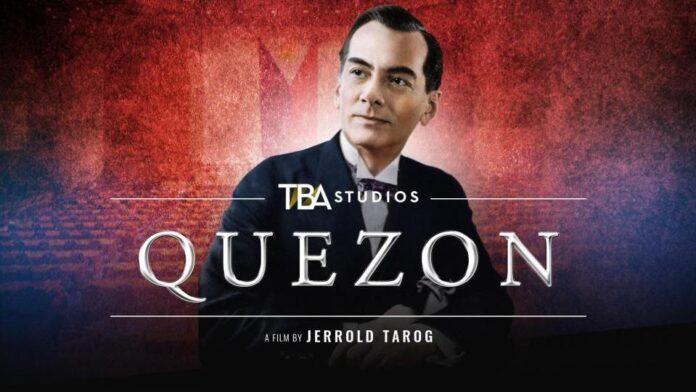TBA Studios’ “Quezon” is not your grandfather’s history lesson—it is a sharp-edged, stylish political drama that trades hero worship for hard truths. The third film in the ever-expanding “Bayaniverse” thrusts Manuel Luis Quezon into the spotlight: brilliant, ruthless, and ablaze with ambition.
Jericho Rosales makes a thunderous return to the big screen, delivering a performance fueled by charm, calculation, and barely contained fury—a perfect fit for a leader who dreamed of independence but was unafraid to bend the rules to achieve it.
Following in the bloodstained footsteps of “Heneral Luna” (2015) and “Goyo: Ang Batang Heneral” (2018), this installment moves the revolution from the battlefield to the backroom. The weapons now are rhetoric, strategy, and power plays. Director Jerrold Tarog and co-writer Rody Vera embrace the murky middle ground of history, freely blending fact and dramatic license to reveal not myths, but men—driven by ego as much as ideals.
Rosales’ Quezon is electrifying: a womanizing, chain-smoking operator with a golden tongue and a steel spine. He charms, threatens, and seduces his way through Manila’s political maze, all while battling the tuberculosis that will eventually consume him. “I would rather have a government run like hell by Filipinos than a government run like heaven by Americans,” he declares—a line that hits differently today, layered with irony, fury, and prophecy.
The film’s emotional backbone lies in Quezon’s fraying relationships—particularly with Sergio Osmeña, portrayed with quiet gravitas by Romnick Sarmenta. Mon Confiado returns as the ever-haunting Emilio Aguinaldo, while Iain Glen (Game of Thrones’ Ser Jorah) lends imperial heft as the inflexible Governor-General Leonard Wood. These fraught alliances and rivalries simmer with tension, sharpened by the knowledge that Quezon is playing a long game—one that requires both sacrifice and a fair amount of self-delusion.
Holding the narrative together is the ever-watchful Joven Hernando, the fictional journalist and reluctant conscience of the “Bayaniverse”, who once again finds himself documenting the rise—and slow moral unraveling—of yet another national hero with feet of clay.
The film closes on a haunting note: a tinny campaign jingle crackling through a transistor radio, signaling the arrival of Ramon Magsaysay—the beloved “man of the masses” whose tragic end looms over the horizon. If the “Bayaniverse” continues at this caliber, its next chapter may be its most poignant yet.
And that might be apt after all, as Tarog has said, the “Bayaniverse” was inspired by “A Question of Heroes,” a book written by Nick Joaquin, a National Artist for Literature—because history, after all, is best told not as legend, but as contradiction.







